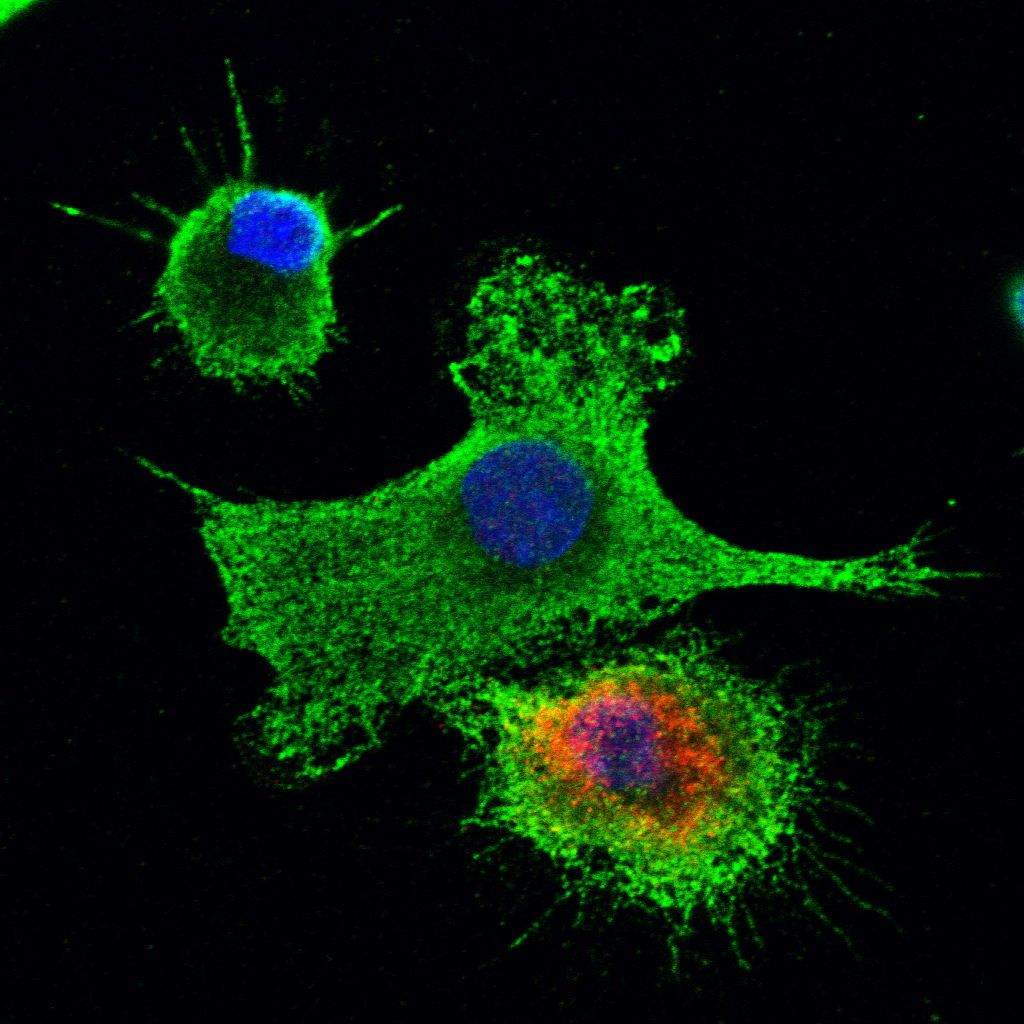
Dr Kevin Maringer
Kevin is a molecular virologist and immunologist interested in how virus-host interactions in mosquito vectors and vertebrate hosts drive arbovirus transmission, pathogenesis and emergence.
Their work focusses on the Orthoflavivirus genus, taking a comparative virology approach to dissect the molecular determinants of species tropism and the maintenance of a dual-host lifecycle involving vertebrate hosts and invertebrate vectors. Kevin has made contributions to our understanding of how flaviviruses cause disease in humans by altering microvascular function, immune and cellular stress responses. They also developed new bioinformatics and molecular tools to study how flaviviruses modify the biology of their vertebrate vectors to enable disease transmission. On a technical level, their work combines molecular virology, mosquito transgenesis, systems biology and machine learning approaches, with a focus on the use of high consequence pathogens up to biocontainment level 3.
Kevin graduated with a degree in Medical Microbiology and Virology from the University of Warwick in 2007. They completed their PhD in the lab of Professor Gill Elliott at Imperial College London, where they studied herpes simplex virus particle assembly. After graduating from their PhD in 2011, Kevin secured a Sir Henry Wellcome Postdoctoral Fellowship from the Wellcome Trust to develop their dengue virus research programme in the labs of Professor Ana Fernandez-Sesma (Icahn School of Medicine at Mount Sinai, New York) and Dr Andrew Davidson (University of Bristol). Kevin established their own research group at the University of Surrey in 2016 and joined The Pirbright Institute as a group leader in 2020.
Kevin is passionate about making science accessible to the public and has contributed to program development at the BBC, and engaged with industry and policy makers through the Microbiology Society and Wellcome Trust. They have championed diversity and worked towards a more inclusive research environment in the life sciences by Co-Chairing the Microbiology Society Members Panel, developing networking opportunities for disabled and neurodivergent microbiologists, raising the visibility of LGBTQ+ scientists through blogs and workshops, and increasing university attainment for minoritised ethnic groups in New York City and England.
Publications
Articles
Committees
- Microbiology Society Members Panel (2022-2025)
- International Society for Neglected Tropical Diseases Dengue Advisory Group (2020-present)
- Microbiology Society Policy Committee (2018-2020)
Conferences
- Mastering Immunity (virtual, 2024) (invited speaker)
- Vector Biology: Emerging Concepts and Novel Technologies (Keystone, 2023) (talk)
- Vector Kolymbari Meeting (Crete, 2022) (talk)
- Incorporating Systems Biology to Vector-borne Pathogen Research: Current Landscape, Challenges and Opportunities (NIH—NIAID/virtual, 2022) (invited speaker and panel member)
- World Dengue Day (virtual, 2021) (invited speaker)
- International Society for Neglected Tropical Diseases ‘Bites’ (virtual, 2020) (invited speaker)
- Zoonotic Emerging Diseases (Indonesia/virtual, 2020) (invited speaker)
- Integrated Insect Immunology: Controlling Infections (France, 2019) (poster)
- Microbiology Society Annual Meeting (UK, 2019) (talk)
- Pre-Empting Pathogen Emergence at the Human-Wildlife Interface (Indonesia, 2018) (invited speaker)
- International Meeting on Arboviruses & Their Vectors (UK, 2017) (talk)
- EMBO Conference on Molecular & Population Biology of Mosquitoes & Other Disease Vectors (Crete, 2017) (turbo talk, poster)
- Microbiology Society Annual Meeting (UK, 2017) (talk)
- XXV International Congress of Entomology (FL USA, 2016) (talk)
- International Meeting on Arboviruses & Their Vectors (UK, 2015) (talk)
- Microbiology Society Annual Meeting (UK, 2011) (talk)
- Microbiology Society Annual Meeting (UK, 2009) (talk)


